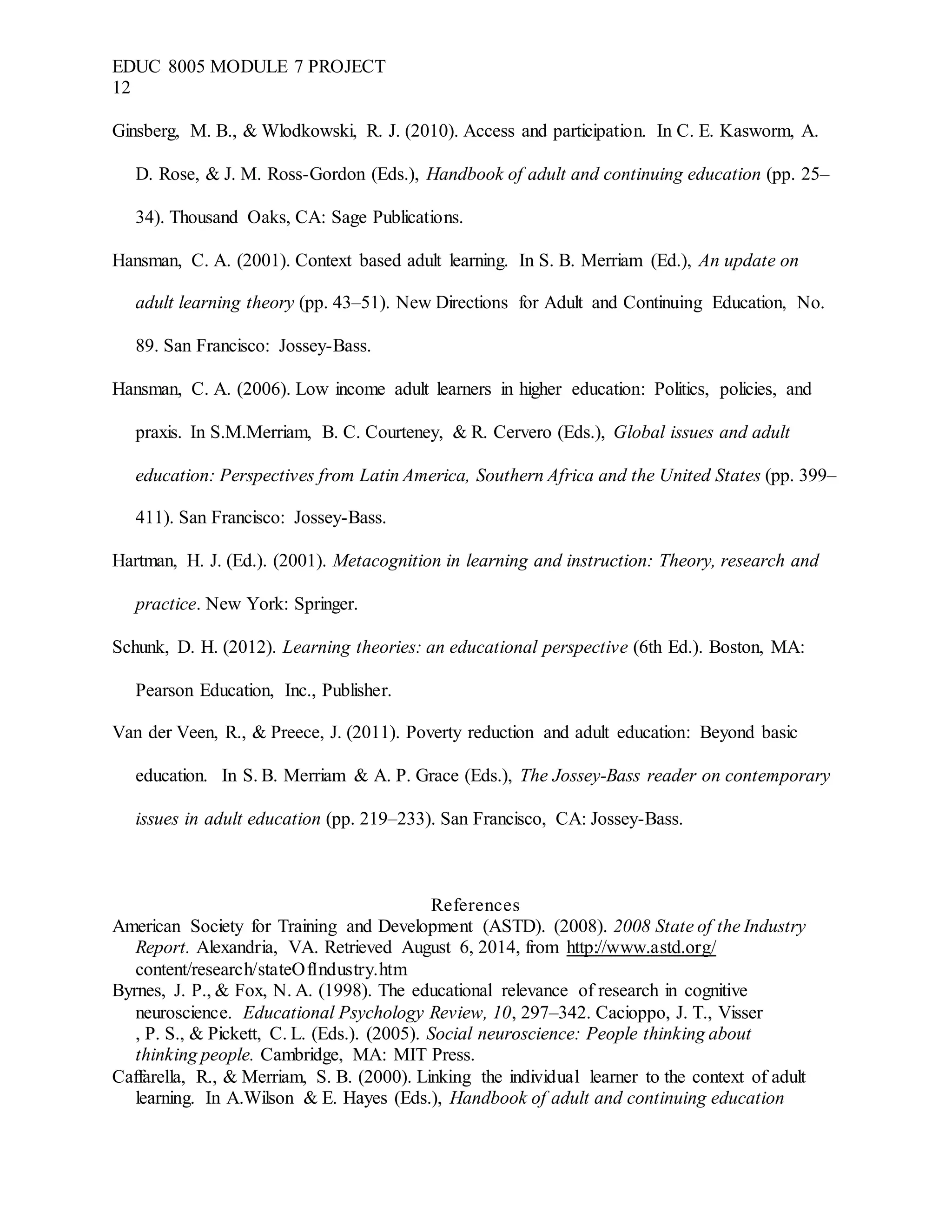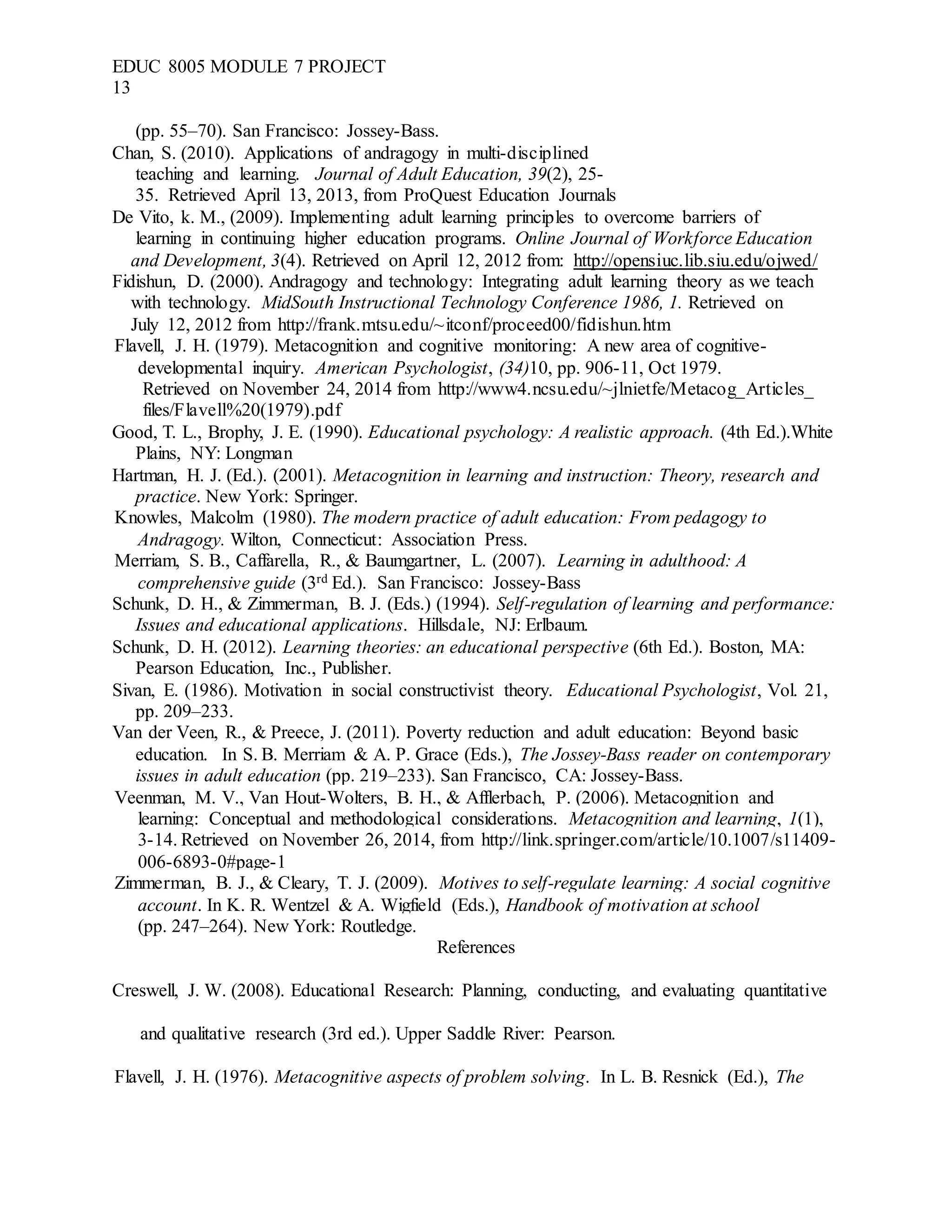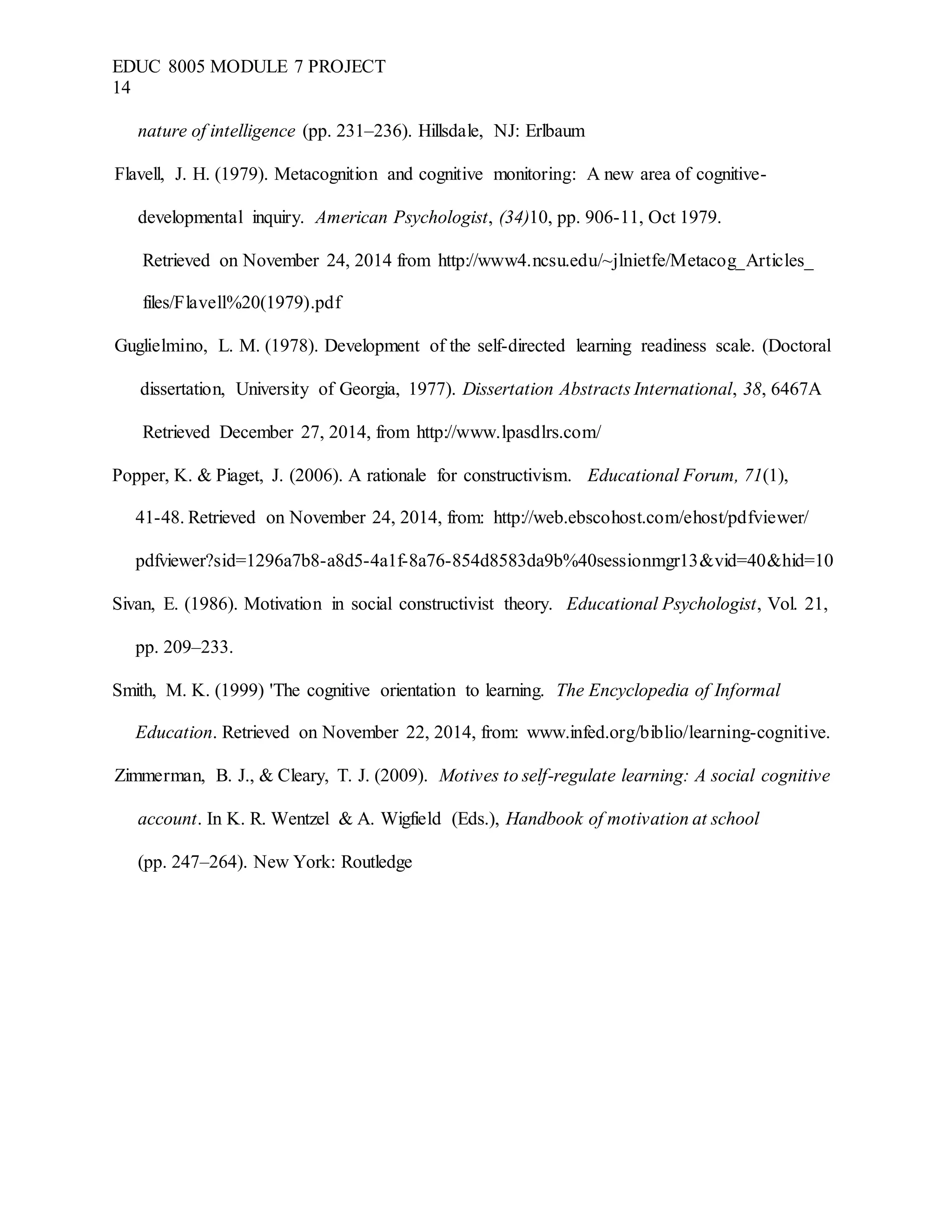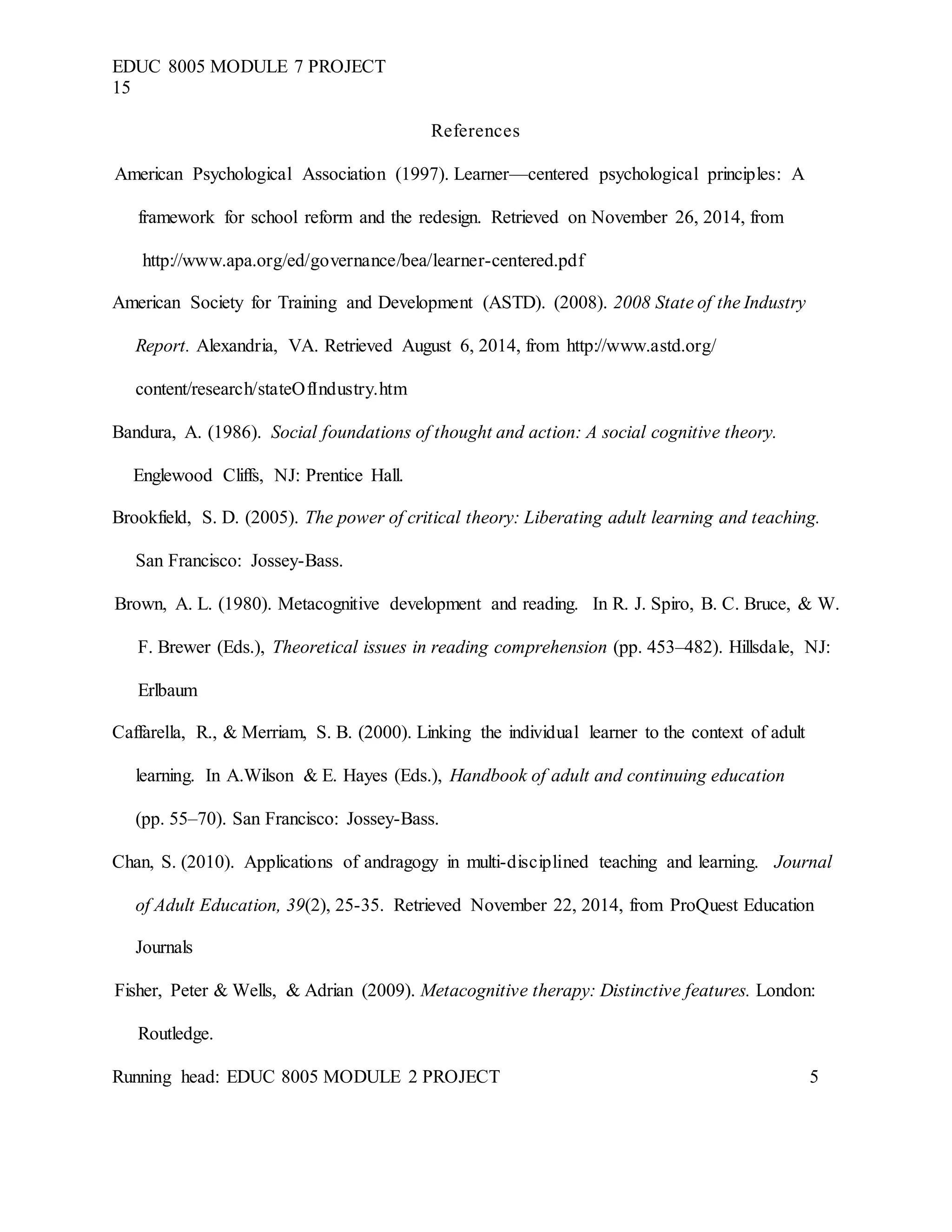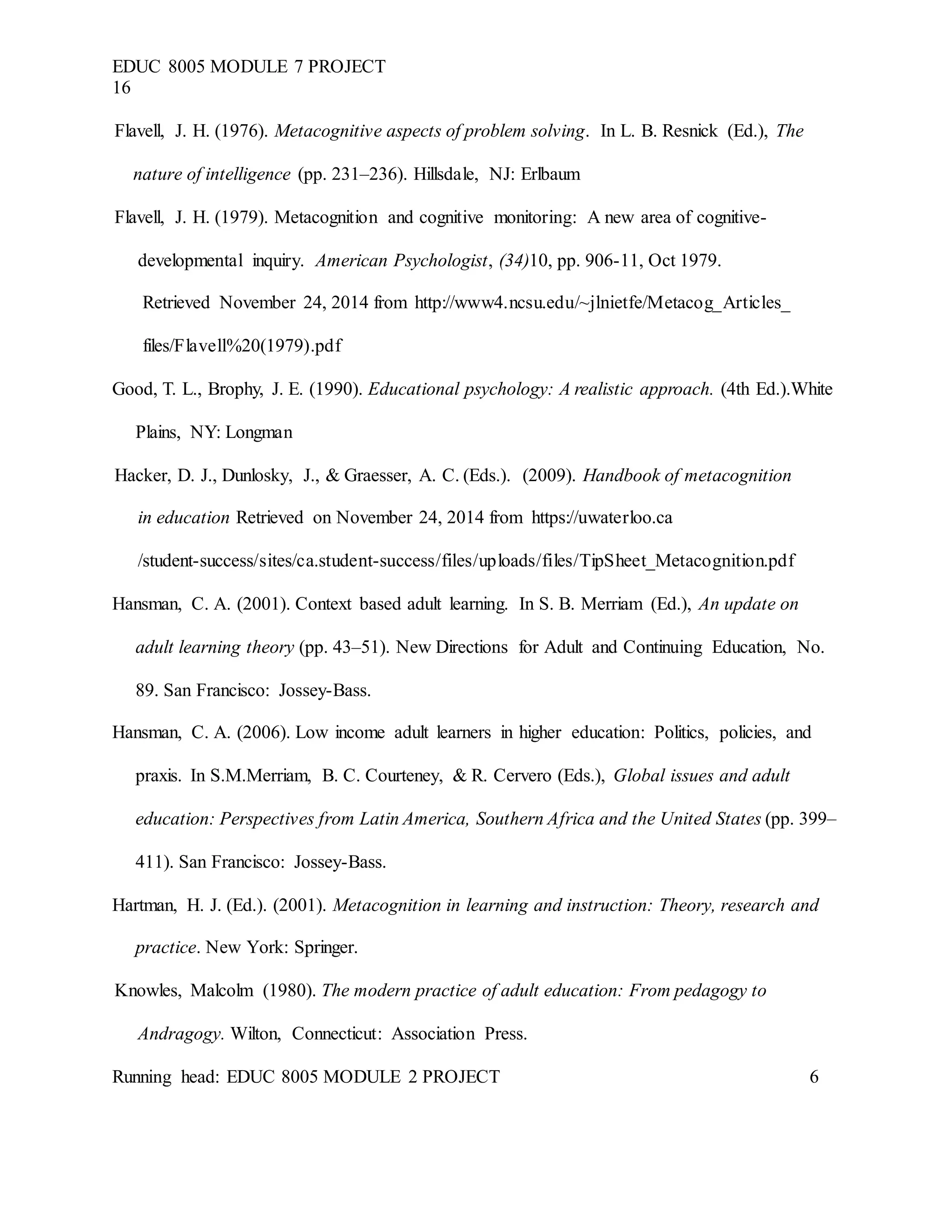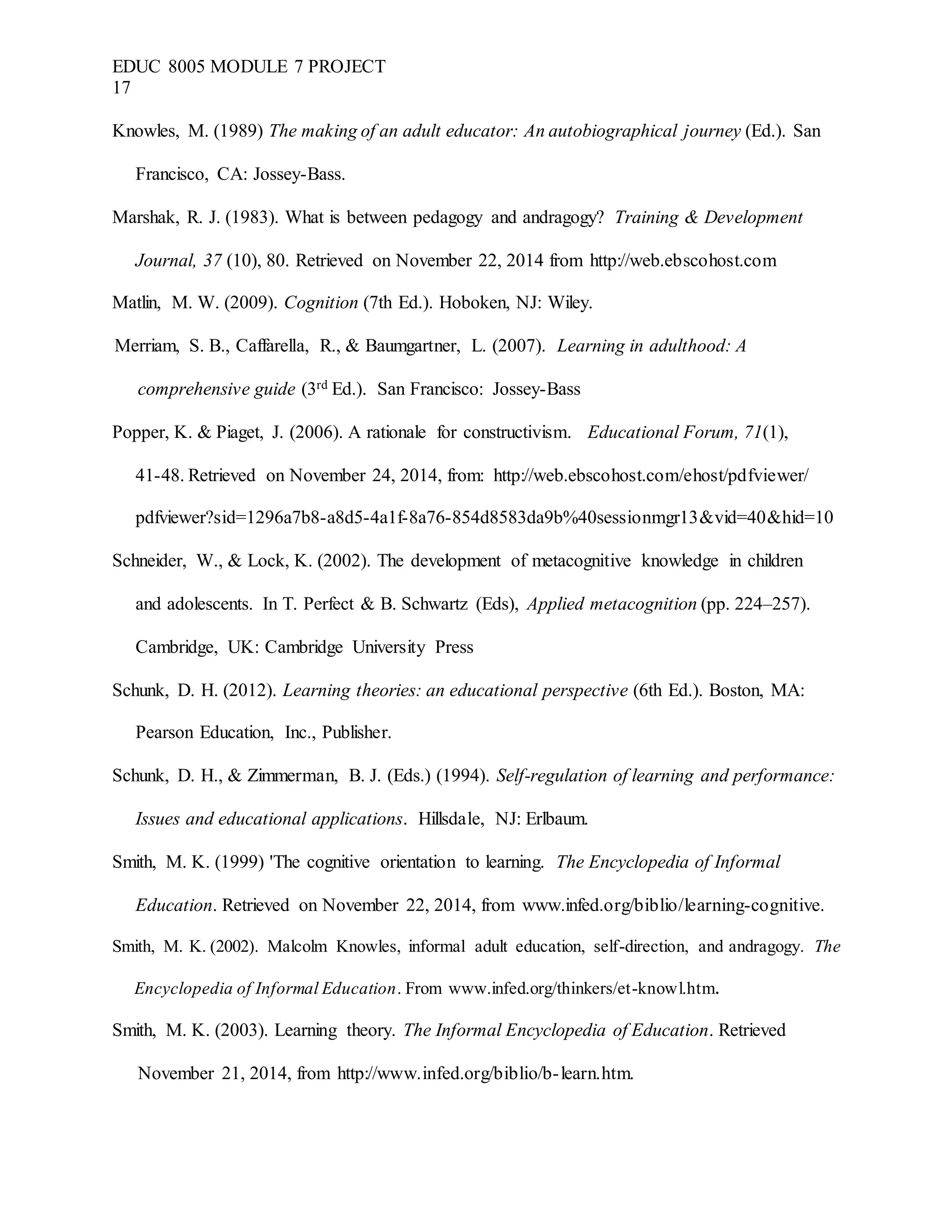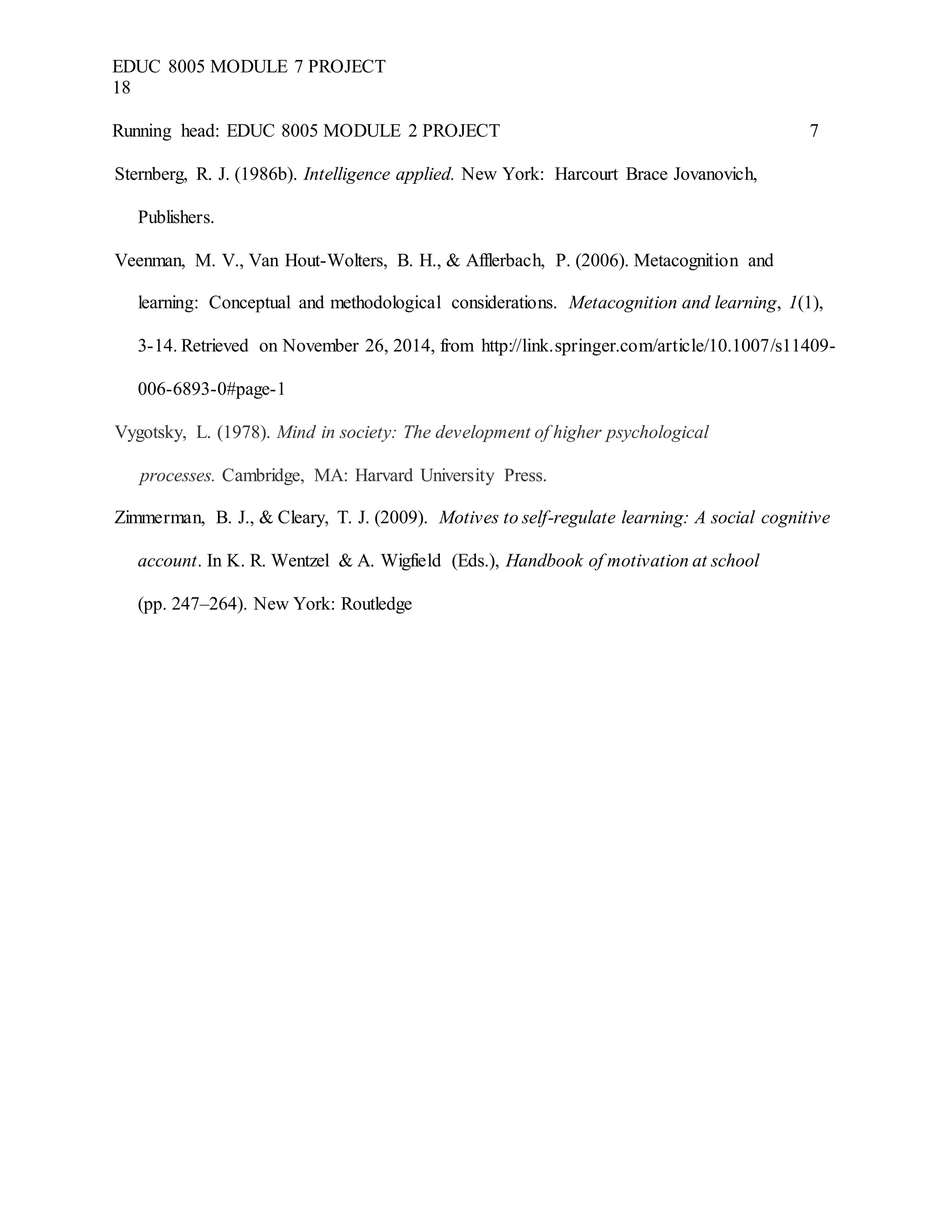This document discusses the interconnectedness of metacognition and adult learning theories, focusing on key concepts like self-directed learning, self-efficacy, and constructivism. It highlights historical influences on these theories, explores current issues facing adult education, and suggests the need for future research to bridge gaps in literature and improve educational practices. The work of significant theorists such as John H. Flavell and Malcolm Knowles is emphasized as foundational to understanding adult learning and the importance of metacognitive skills.
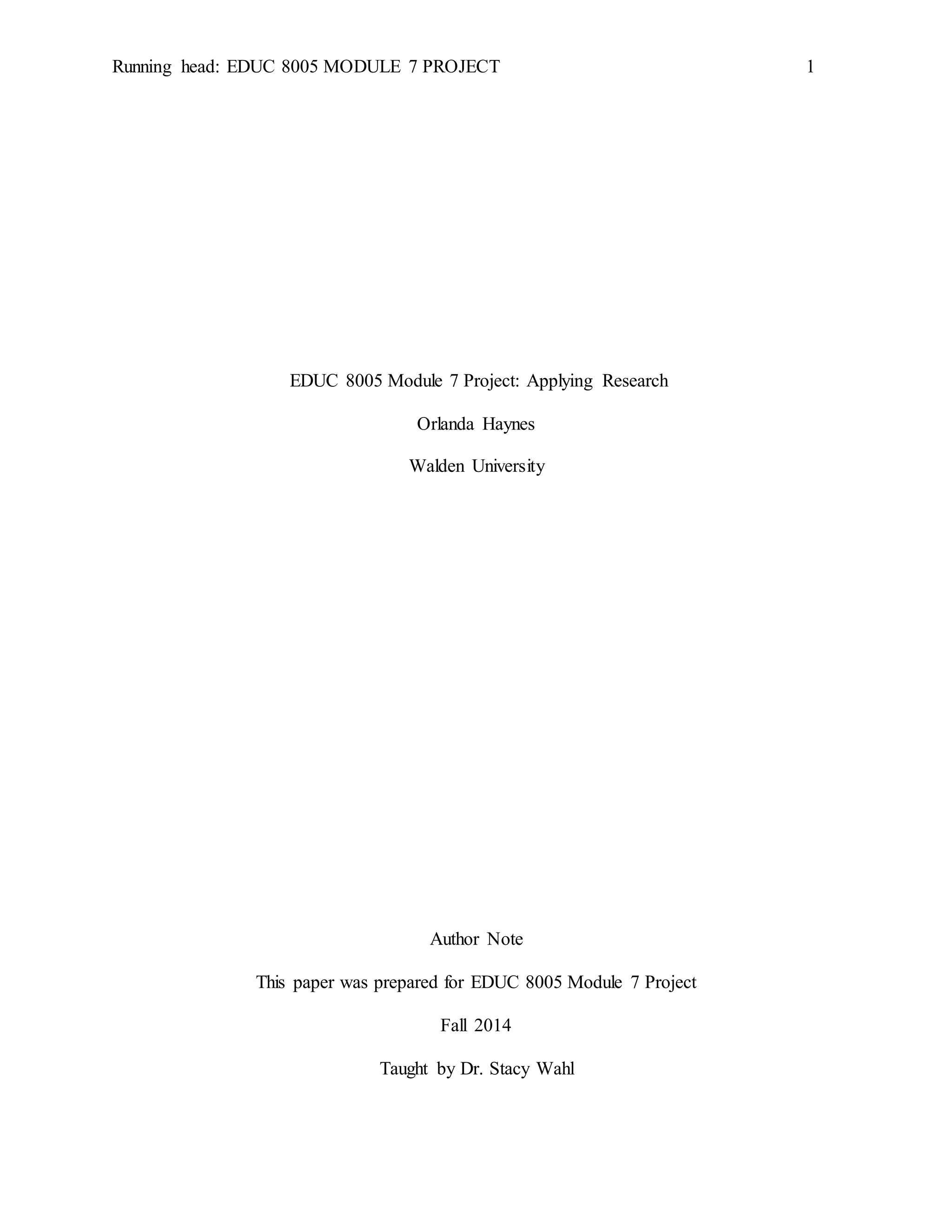
![EDUC 8005 MODULE 7 PROJECT 2
EDUC 8005 Module 7 Project: Applying Research
INTRODUCTION
Learning is a cognitive process that involves acquiring, modifying, and reinforcing,
knowledge, behaviors, and skills. Learning theories, on the other hand, address how information
is process, stored, and used. Metacognition is a self-regulated approach to learning; it
involves monitoring, planning, and assessing cognitive abilities and performances.
The purpose of this assignment is to create an original work by combining modular 1-
5 assignments, which are based on the conceptual framework that constructs of
metacognition and adult learning theories (e.g., self-directed learning, self-efficacy,
Andragogy, and constructivism [self-regulated]) are interconnected aspects of the
learning processes. Literature is presented by responding to the following questions as well as
recommendations for social changes.
1. Which historical antecedents influenced the fields of metacognition and adult learning
theories?
2. What are the results of those influences?
3. What issues confront the fields today?
4. Are there three most relevant sources?
5. Which sources best support this research topic?
6. Recommendation: social change in the fields of metacognition and adult education
Which Historical Antecedents Influenced the Fields of Metacognition and Adult Learning
Theories?](https://image.slidesharecdn.com/hayneso-190305084726/75/EDUC-8005-Module-7-Project-2-2048.jpg)
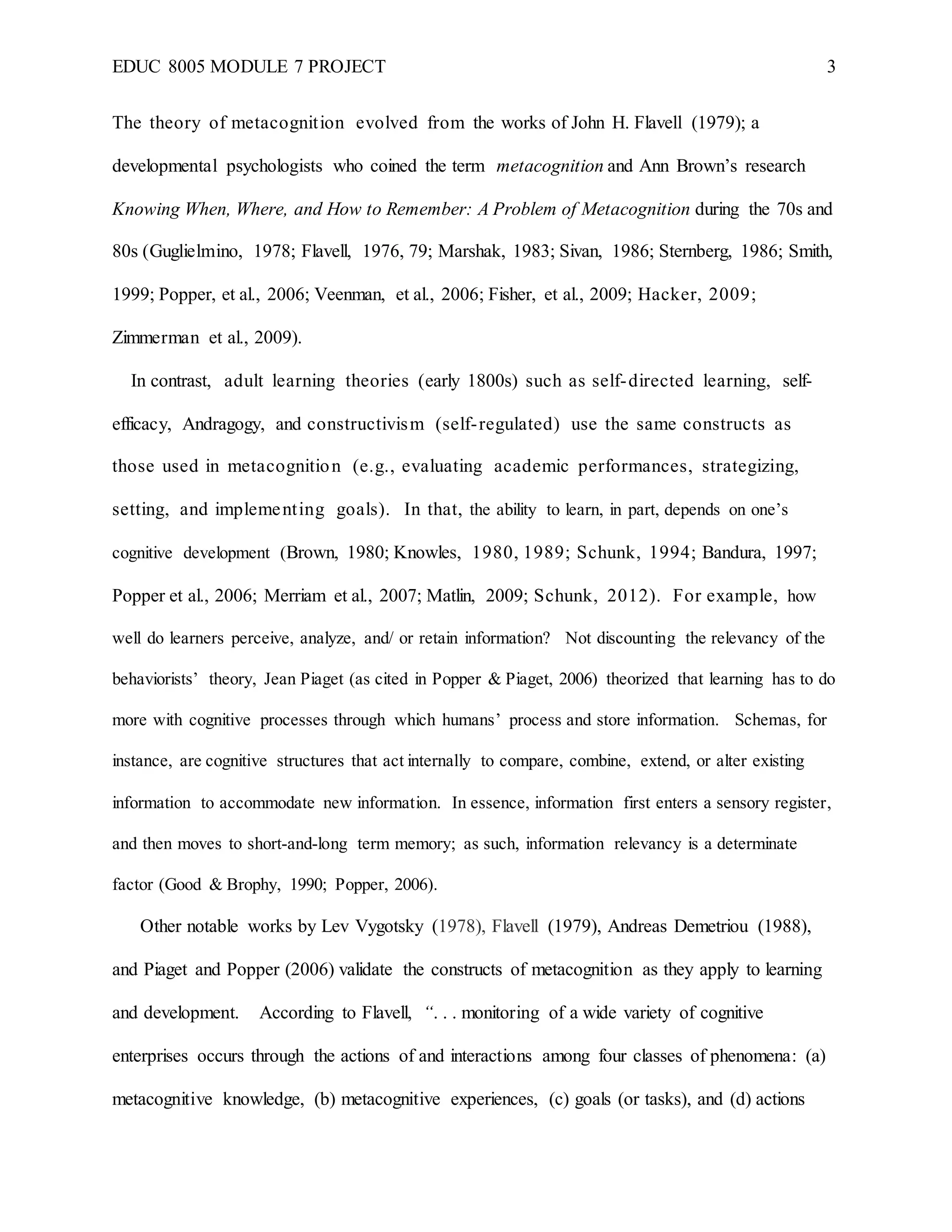
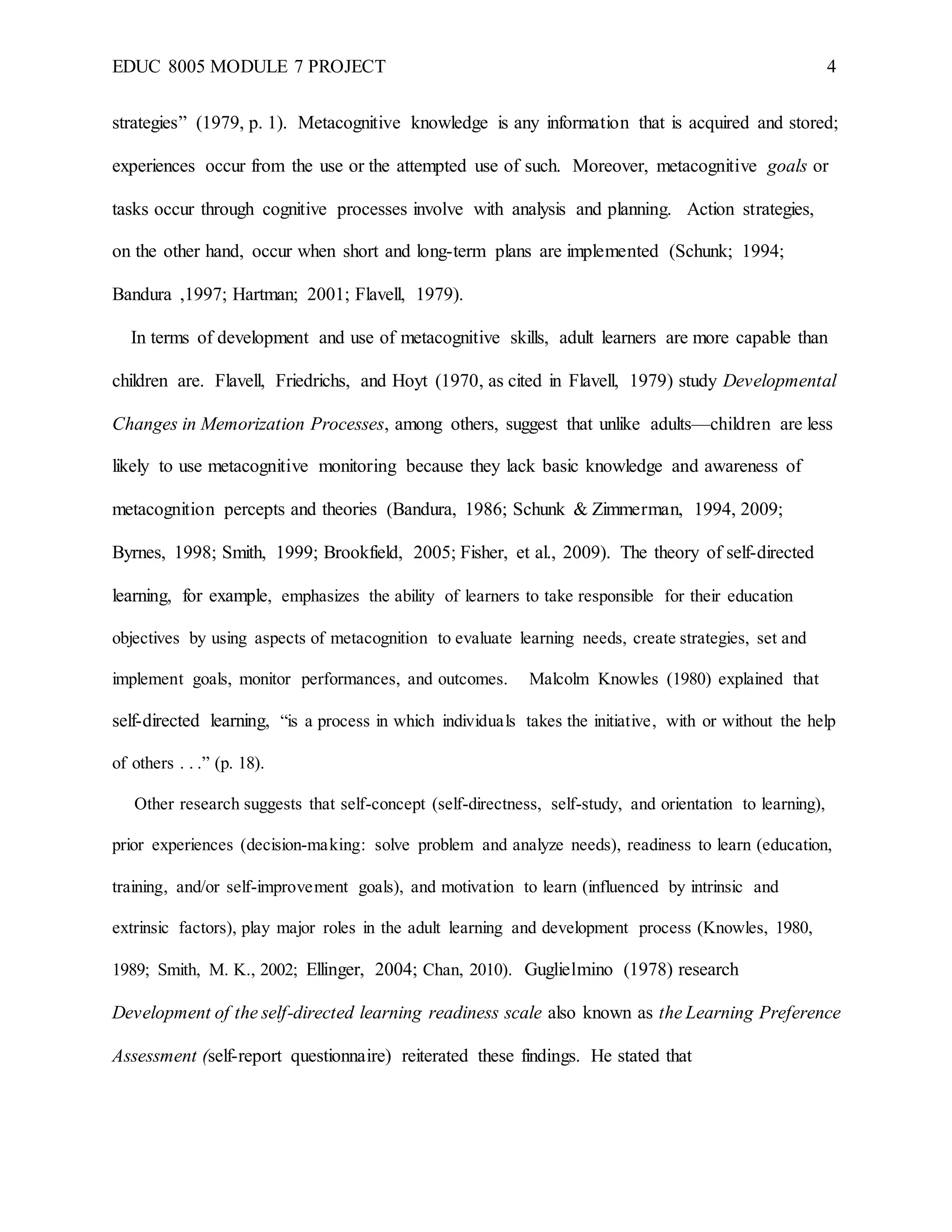
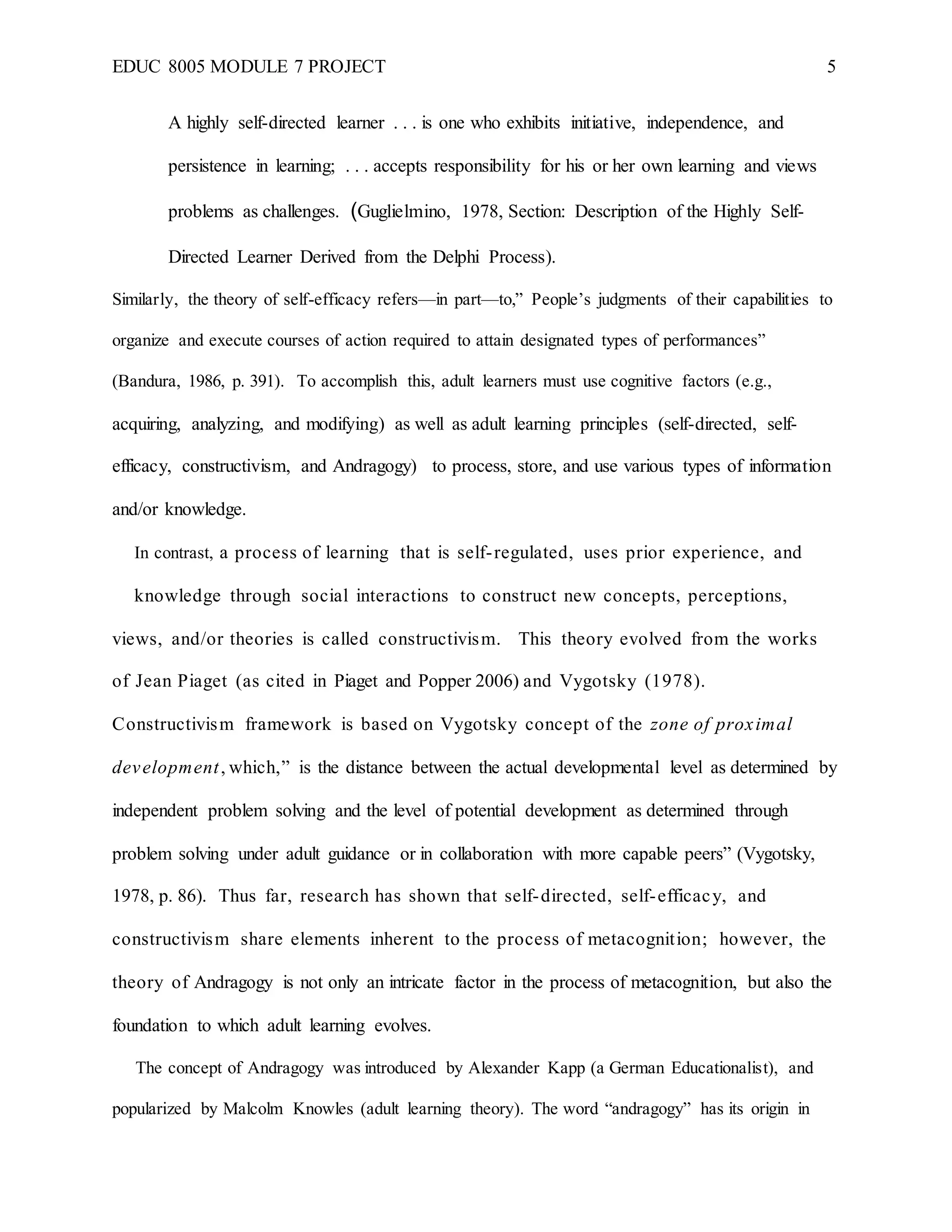
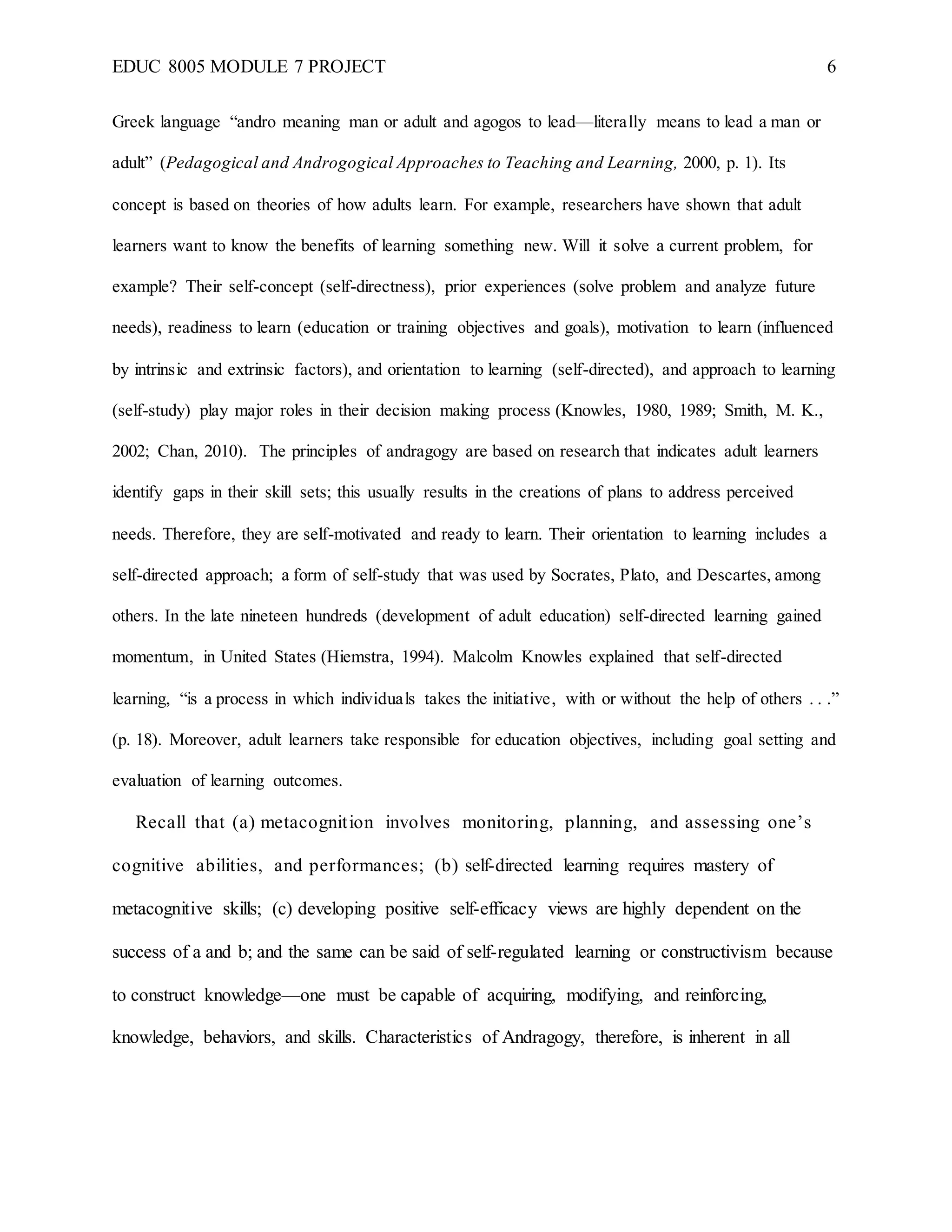
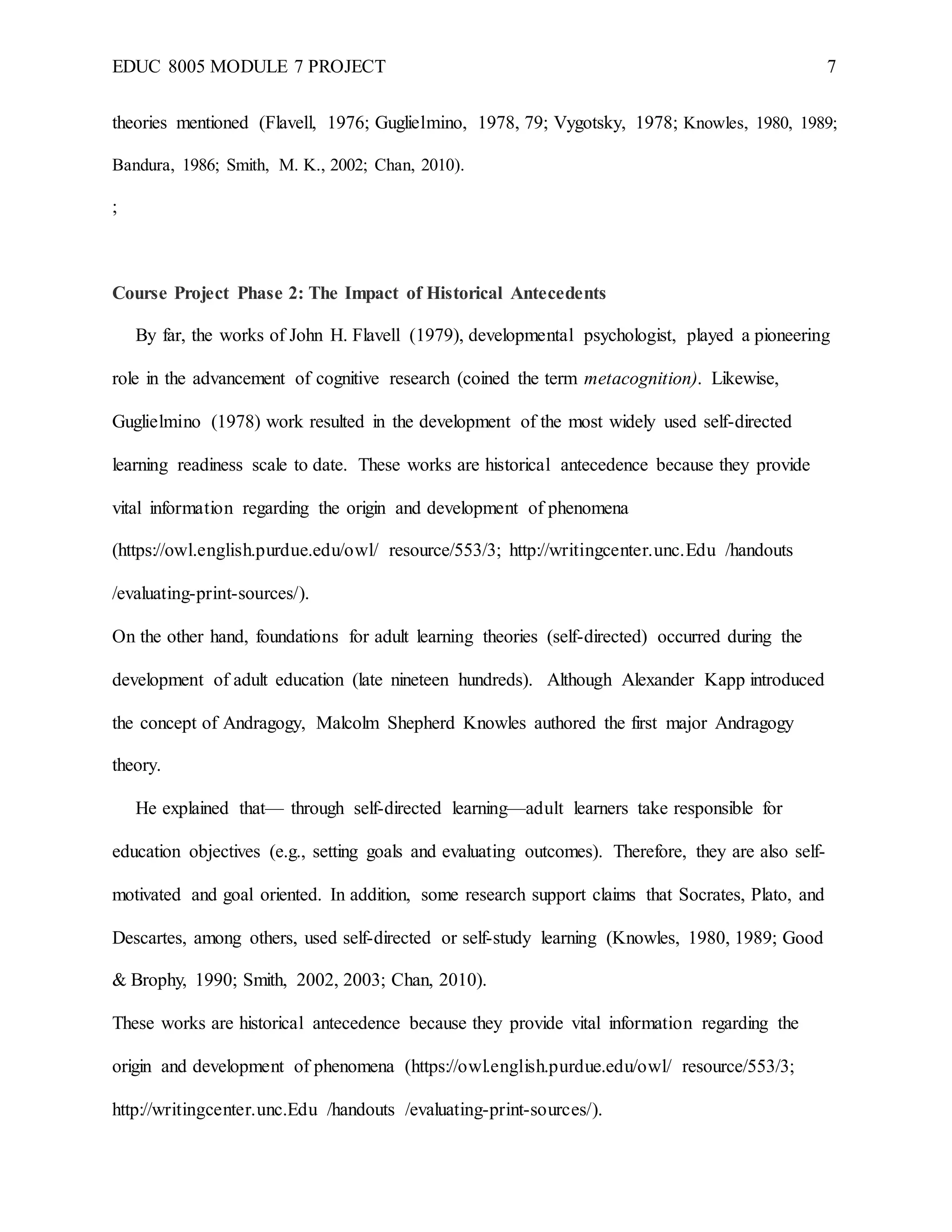
![EDUC 8005 MODULE 7 PROJECT 8
Briefly Describe the Current landscape in [Adult your chosen field].
Moreover, trends in adult and postsecondary education include workforce changes (e.g.,
technological, economical, societal, educated/skilled labor-force), expansion in global diversity,
and expanded access to education programs and services currently limited to face-to-face
meetings (American Psychological Association, 1997; Caffarella et al., 2000; Hansman, 2001;
Brookfield, 2005; Hansman, 2006; American Society for Training and Development, 2008;
Schunk, 2012).
What new research could address these challenges? Explain.
In terms of understanding the interconnectedness of cognitive motivators and dopamine
responses (self-motivation and self-regulation), new research would help fill gaps in the
literature—thereby building bridges between education and neuroscience (Byrnes et al.,1998;
Hansman, 2006; American Society for Training and Development, 2008; Schunk, 2012).
As far as establishing specific guidelines for implementing self-directed learning principles
within accountability frameworks, new research could provide answers to education
communities nationwide—thereby, again, filling gaps in literature. Finally, providing new
research that addresses access barriers to degree and credential program ordinarily limited to
face-to-face meeting would allow for more student participation in the diverse field of medicine,
for example (Caffarella et al., 2000; Hansman, 2001; Brookfield, 2005; Hansman, 2006;
American Society for Training and Development, 2008).
Education communities (e.g., schools, colleges, universities) and their affiliates (e.g.,
government and private organizations and companies, researchers, educators, staff, students, and
parents) are vehicles for the advancement of the education industry. Within my field of interest,
this discussion highlights three most relevant organizations (Institute for Education Sciences
[research branch of the U.S. Department of Education]; The American Association for Adult and
Continuing Education; The European Association for Research on Learning and Instruction
[EARLI]), their emerging and most significant trends as well as their impact on the future of
adult and continuing education.
The Institute for Education Sciences (IES)
The IES funds education research projects including training and support for researchers;
replaces or improves states’ education data systems; shares and promotes findings (e.g., Nation's
Report Card, What Works Clearinghouse, the ERIC education database, National Research and](https://image.slidesharecdn.com/hayneso-190305084726/75/EDUC-8005-Module-7-Project-8-2048.jpg)
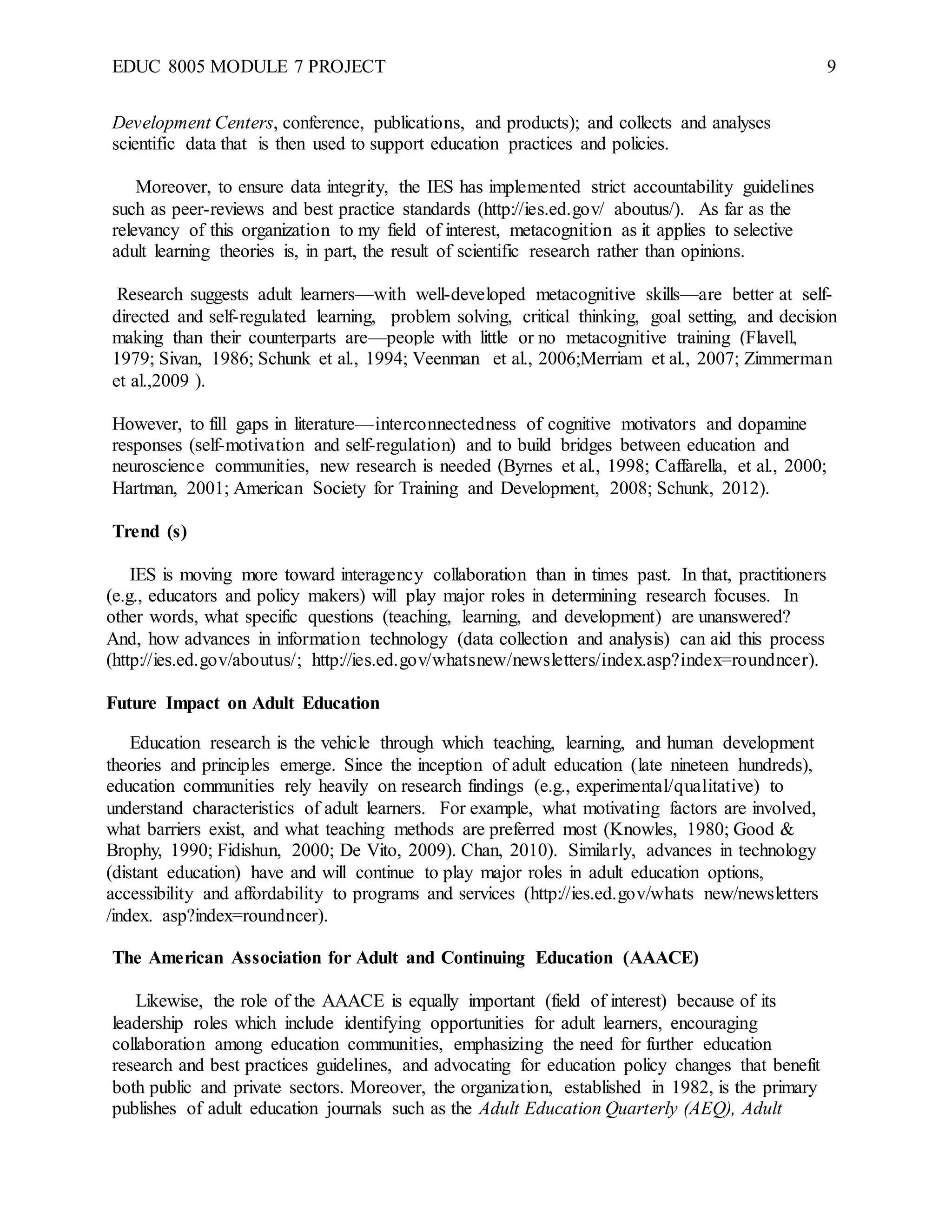
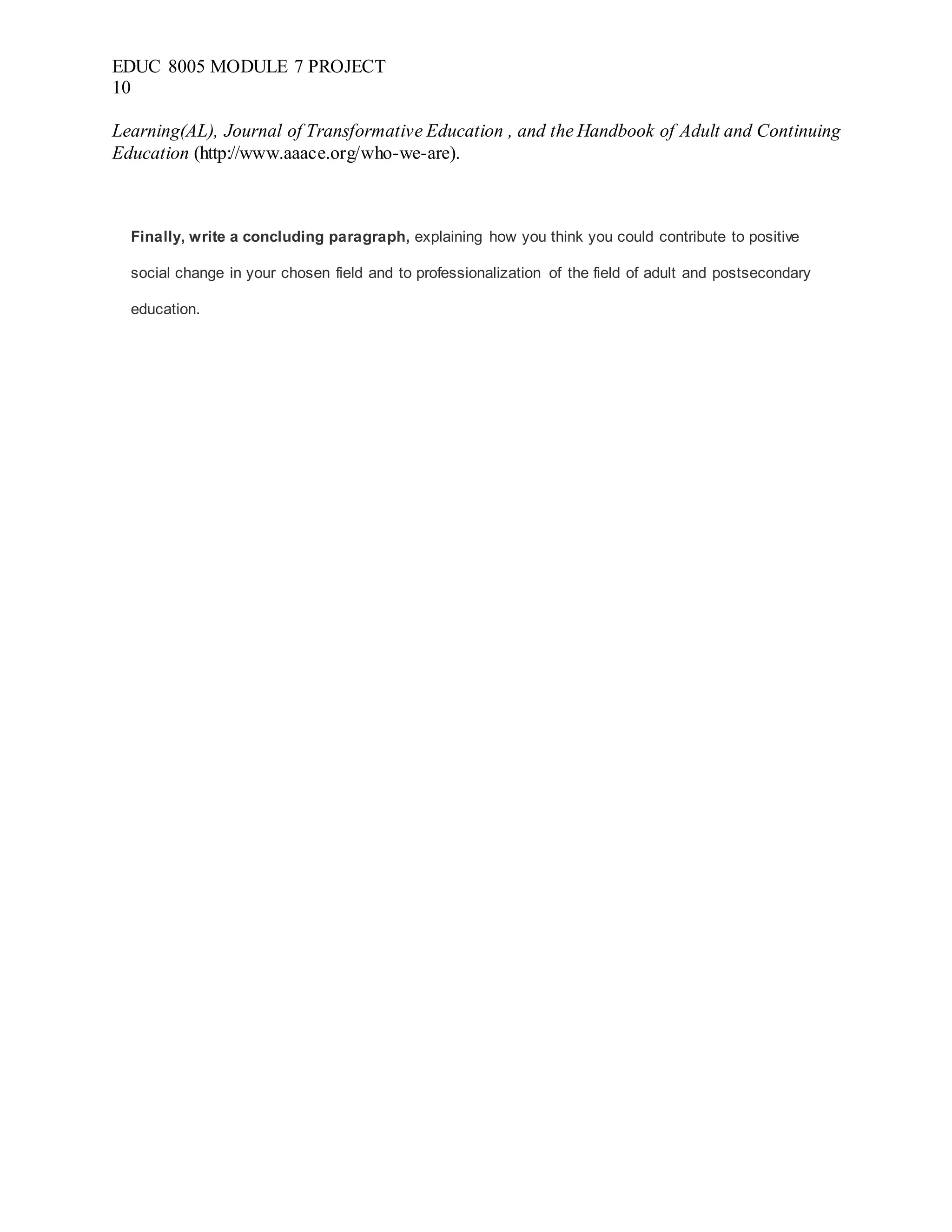
![EDUC 8005 MODULE 7 PROJECT
11
Reference
Altbach, P. G., Reisberg, L., & Rumbley, L. E. (2009).Trends in global higher education:
Tracking an academic revolution [A report prepared for the UNESCO World Conference on
Higher Education]. Retrieved from the UNESCO
website: http://unesdoc.unesco.org/images/0018/001832/183219e.pdf
American Psychological Association (1997). Learner—centered psychological principles: A
framework for school reform and the redesign. Retrieved on November 26, 2014, from
http://www.apa.org/ed/governance/bea/learner-centered.pdf
American Society for Training and Development (ASTD). (2008). 2008 State of the Industry
Report. Alexandria, VA. Retrieved August 6, 2014, from http://www.astd.org/
content/research/stateOfIndustry.htm
Brookfield, S. D. (2005). The power of critical theory: Liberating adult learning and teaching.
San Francisco: Jossey-Bass.
Byrnes, J. P., & Fox, N. A. (1998). The educational relevance of research in cognitive
neuroscience. Educational Psychology Review, 10, 297–342. Cacioppo, J. T., Visser
,P. S., & Pickett, C. L. (Eds.). (2005). Social neuroscience: People thinking about
thinking people. Cambridge, MA: MIT Press.
Caffarella, R., & Merriam, S. B. (2000). Linking the individual learner to the context of adult
learning. In A.Wilson & E. Hayes (Eds.), Handbook of adult and continuing education
(pp. 55–70). San Francisco: Jossey-Bass.
Ellinger, A. D. (2004). The concept of self-directed learning and its implications for human
resource development. Advances in Developing Human Resources, 6(2), 158-177. Retrieved
from http://search.proquest.com/docview/221134598?accountid=14872](https://image.slidesharecdn.com/hayneso-190305084726/75/EDUC-8005-Module-7-Project-11-2048.jpg)
